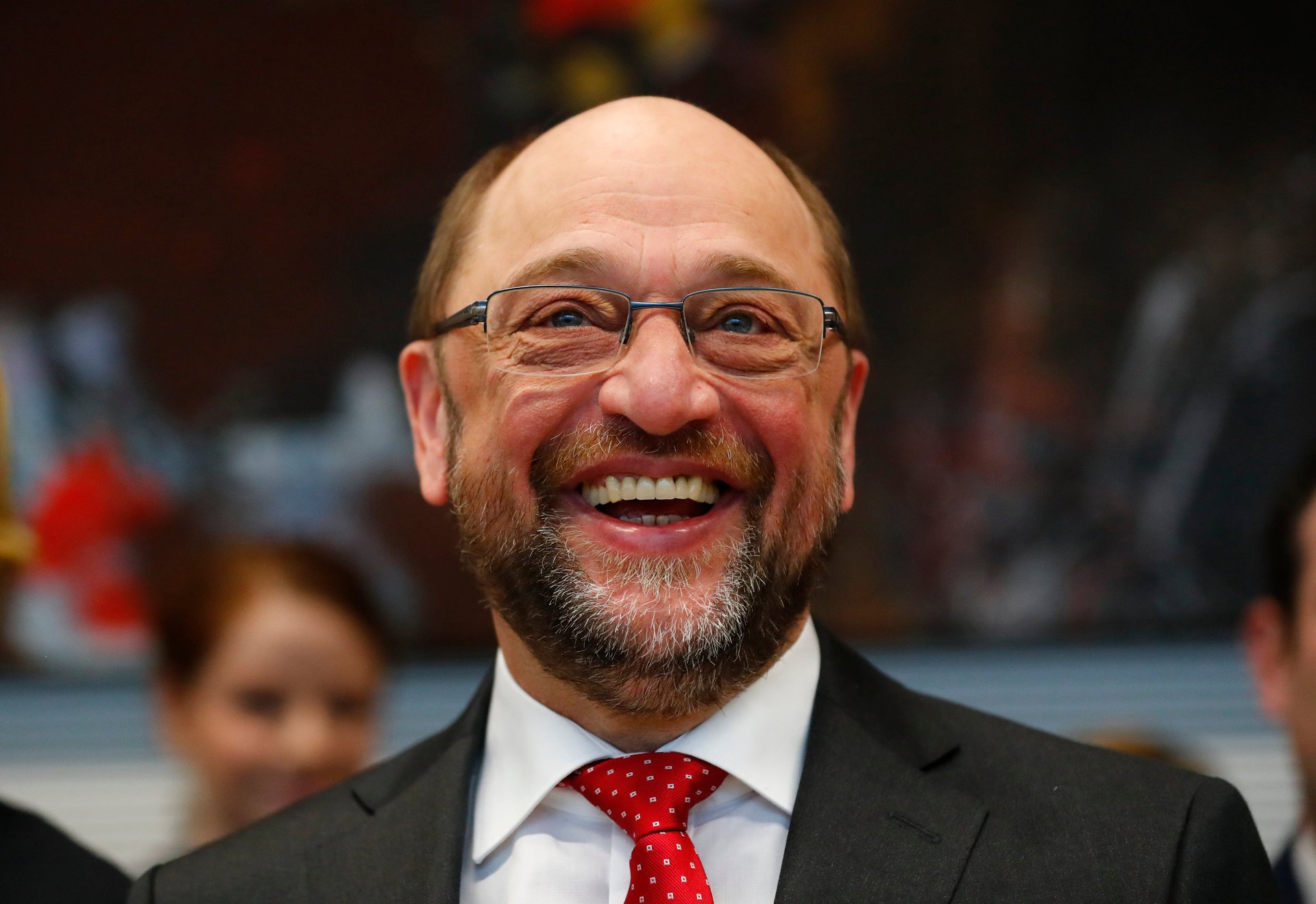The first serious challenger to Angela Merkel is a pro-EU socialist who isn’t afraid of a fight
Sigmar Gabriel, Germany’s economy minister and head of the center-left Social Democratic Party (SDP), surprised a lot of people this week by announcing he won’t run against chancellor Angela Merkel in September’s federal election.


Sigmar Gabriel, Germany’s economy minister and head of the center-left Social Democratic Party (SDP), surprised a lot of people this week by announcing he won’t run against chancellor Angela Merkel in September’s federal election.
Instead, he backed Martin Schulz to take over his party, and by extension take on Merkel. In seeking her fourth four-year term as chancellor, many thought Merkel was most vulnerable to eroding support on her right wing, in the form of the populist Alternative for Germany party. Schulz’s candidacy has made the battle for Germany’s top job even more interesting.
“This country needs new leadership in these difficult times,” Schulz said at a press conference in Berlin (link in German) on Tuesday night. “I’m saying to all the populists and extremist enemies of our democracy and our pluralistic values… the fight starts now.”
The pugnacious Schulz, a long-time member of the European Parliament—and its president from 2012-2016—could be just the man to give Merkel a serious run for her money. He cares as much about the EU as she does, has no time for Brexiteers, and thinks Donald Trump is “a problem for the whole world.” He’s also best friends with with European Commission president Jean-Claude Juncker.
The 61-year-old doesn’t shy away from a fight. One of his most memorable run-ins in Brussels was with Silvio Berlusconi in 2003, when the former Italian premier said Schulz could be cast in films as a Nazi concentration camp leader.
“My respect for the victims of fascism will not permit me to deal with that kind of claim at all, “ Schulz responded, to a round of applause.
Schulz was born in a small village in the western Rheinland near the German border with the Netherlands and Belgium. A knee injury ended his dream of becoming a professional footballer, and, after dropping out of high school and battling with alcoholism and depression, he went on to open a bookstore in the town of Würselen. He become its mayor at the age of 31.
He entered the European parliament in 1994, and has since earned a reputation as an outspoken defender of the EU. He told Der Spiegel in September that he was very concerned about the growing nationalism within member countries. ”We brought these demons under control through European structures, but if we destroy those structures, the demons will return,” Schulz said. He hammered home his feelings about the bloc on Tuesday, saying: “With me, there will be no Europe bashing.”
No surprise, then, that he is deeply anti-Brexit—something that, were he to oust Merkel, could make things more difficult for the UK as it negotiates its divorce from the bloc. Schulz said last year that if European Parliament members weren’t given a say in the Brexit negotiations, they may not approve the final deal, and then “the UK would face the hardest Brexit possible.”
He’s not a fan of Trump, either. He told Der Spiegel that if Trump won it would be a problem not only for the EU but for the whole world. ”When a man ends up in the White House who boasts about not having a clue and who says that specialist knowledge is elite nonsense, then a critical point has been reached,” he said.
Merkel is still the frontrunner; a December poll (paywall) by ARD/Infratest suggested that Gabriel wouldn’t have stood a chance against the chancellor. But in a choice between Merkel and Schulz, 43% would stick with Merkel and 36% would go for Schulz. There is a lot of campaigning left, and recent history suggests that a margin that size is far from safe.